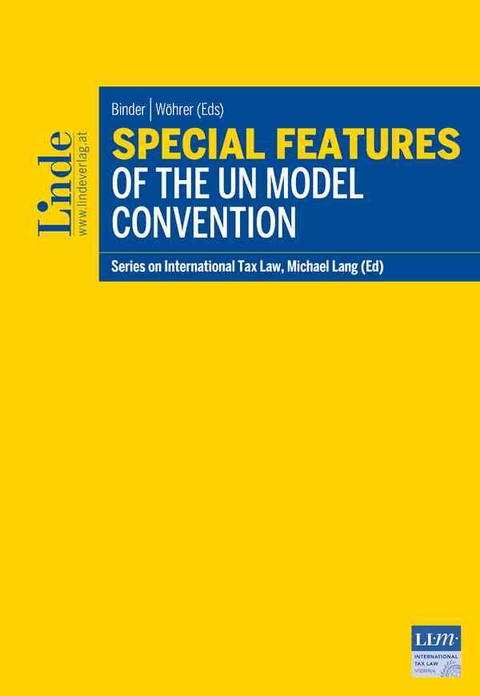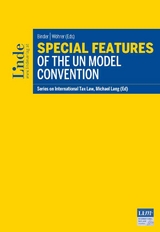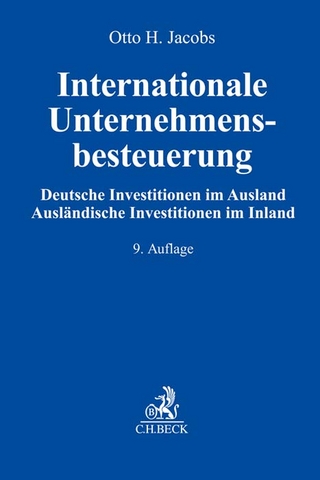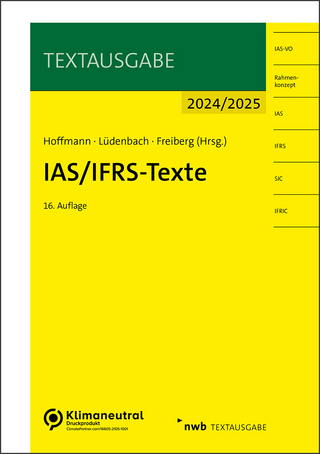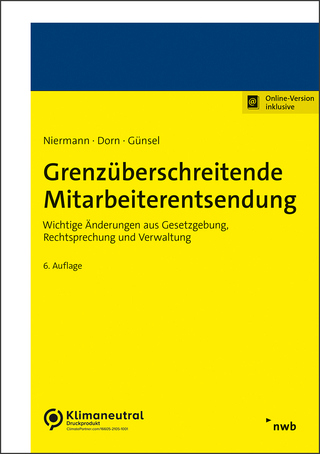Special Features of the UN Model Convention
Linde Verlag Ges.m.b.H.
978-3-7073-4124-9 (ISBN)
With focus on the unique features of the UN Model Convention, this book is supplemented with an evaluation of the function and relevance of the UN Tax Committee in the international tax policy discussion and with an analysis of the influences of the OECD's BEPS project on the UN Model.
Detailed research on the UN Model Convention's unique features
The UN Model Convention has a significant influence on international tax treaty practice and is especially used by emerging and developing countries as a starting point for treaty negotiations. Driven by the aim to achieve consistency in the international tax treaty practice, the structure and content is, to a large extent, similar in the UN Model and the OECD Model. However, whereas the OECD has historically focused its efforts on issues mainly relevant for developed countries, the UN Tax Committee has continuously attempted to specifically take into account tax treaty policies for developing countries when drafting and amending the UN Model Convention.
Compared to the OECD Model Convention, the UN Model Convention aims at giving more weight to the source principle. Popular examples are the PE definition in the UN Model which provides for a lower threshold than Article 5 of the OECD Model or Article 12A on Fees for Technical Services which has been introduced with the latest amendment of the UN Model Convention 2017 and allows for a withholding tax to be levied on payments to non-residents when the payer of the fee is a resident of that contracting State irrespective of where the services are provided. Interestingly, in the discussions of the tax challenges arising from the digitalization of the economy, the OECD and the G20 are also exploring options to allocate more taxing rights to the jurisdiction of the customer and/or user, i.e., the 'market jurisdictions'. As this has traditionally been the focus of the UN Model Convention, its unique features and developing countries' practices could be taken into account when exploring new nexus rules that are not constrained by the physical presence requirement.
This book contains the master's theses of the full-time LL.M. program 2018-2019 for which 'Special Features of the UN Model Convention' has been chosen as the general topic. With this book, the authors and editors do not aim at discussing each article of the UN Model Convention but rather focus on the unique features of the UN Model Convention, which are explored in detail. This is supplemented with an evaluation of the function and relevance of the UN Tax Committee in the international tax policy discussion and with an analysis of the influences of the OECD's BEPS project on the UN Model.
Rechtsanwaltsanweärterin bei Freshfields Bruckhaus Deringer, Lehrbeauftragte am Institut für Österreichischres und Internationales Steuerrecht, WU Wien.
Employed at an international tax firm in Vienna, is a lecturer at the Vienna University of Economics and Business (WU), and an author of various publications on international, European, and domestic Austrian tax law.
| Erscheinungsdatum | 12.10.2019 |
|---|---|
| Reihe/Serie | Schriftenreihe zum Internationalen Steuerrecht ; 117 |
| Sprache | englisch |
| Maße | 155 x 225 mm |
| Gewicht | 1180 g |
| Einbandart | kartoniert |
| Themenwelt | Recht / Steuern ► Steuern / Steuerrecht ► Internationales Steuerrecht |
| Schlagworte | DBA • Doppelbesteuerung • Musterabkommen |
| ISBN-10 | 3-7073-4124-0 / 3707341240 |
| ISBN-13 | 978-3-7073-4124-9 / 9783707341249 |
| Zustand | Neuware |
| Informationen gemäß Produktsicherheitsverordnung (GPSR) | |
| Haben Sie eine Frage zum Produkt? |
aus dem Bereich
